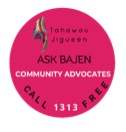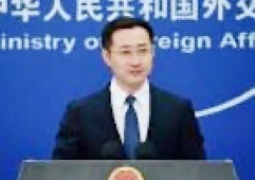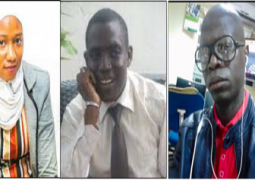As we delve into the intricate web of consequences, consider the compelling statistics that underscore the urgency of this issue. A World Bank report reveals that the global economic cost of violence against women is estimated to be around $4.4 trillion annually, equivalent to 5.2% of the world's gross domestic product.
In The Gambia, this economic toll is keenly felt, impacting both individual women and the broader economy. While the Gambian government is keenly working to increase inclusion to contribute to socioeconomic development — most notably including targets in the National Development Plan related to gender equality and women’s economic empowerment, and the Central Bank of The Gambia is working towards the country’s first National Financial Inclusion Strategy — silent issues such as GBV exasperate the fundamental challenges already hamstringing women’s inclusion in our national development (e.g. access to capital & financial literacy, education, and, healthcare).

The physical and mental toll on survivors transcends into workplaces, impacting not only individual women but the companies they work for and society at large. The World Health Organization (WHO) estimates that women who have experienced intimate partner violence are more likely to have poor mental health, affecting their ability to work efficiently. The consequence? A workforce hindered by the silent epidemic of diminished productivity.
Economically, the repercussions are staggering. A study by the International Labour Organization (ILO) found that the productivity of women subjected to violence can be up to 60% lower than their non-abused counterparts. GBV disrupts the economic stability of women, limiting their access to education, career opportunities, and financial independence.
 The ripple effect extends to absenteeism, as survivors may need to take time off work to address health concerns or find safety. The workplace becomes a casualty of this silent struggle, grappling with missed workdays, reduced focus, and often the termination among affected individuals. Women in The Gambia already have lower participation in formal employment and more limited earning potential and access to assets – just 39% of economically active women are formally employed. Women’s overall participation rate in the workforce is lower than men's, with 57% of women economically inactive compared to 36% of men, of the female and male populations over 15 years of age. Furthermore, gender norms and male influence contribute to limiting women’s access to financial services and agency.
The ripple effect extends to absenteeism, as survivors may need to take time off work to address health concerns or find safety. The workplace becomes a casualty of this silent struggle, grappling with missed workdays, reduced focus, and often the termination among affected individuals. Women in The Gambia already have lower participation in formal employment and more limited earning potential and access to assets – just 39% of economically active women are formally employed. Women’s overall participation rate in the workforce is lower than men's, with 57% of women economically inactive compared to 36% of men, of the female and male populations over 15 years of age. Furthermore, gender norms and male influence contribute to limiting women’s access to financial services and agency.
Moreover, GBV impedes career advancement, stifling the ambitions of women who fear violence and may thwart their pursuit of promotions and professional growth. Workplace relationships suffer as a result, creating a toxic environment that hampers collaboration and teamwork. The erosion of self-esteem and confidence further compounds the issue, robbing workplaces of the diverse voices and perspectives essential for innovation and success.
The cyclical impact of GBV is perhaps the most insidious. Children growing up in homes marred by violence face academic and emotional challenges, perpetuating a cycle of diminished productivity that spans generations.
In this crucial juncture, the Ask Bajen Community Advocates, spearheaded by the PF-Initiative (formerly The Paradise Foundation), is one of the leading local organisations challenging the status quo and demanding a society that not only recognizes but actively addresses the staggering economic toll of GBV.
Comprising 40 women from each region, the Bajens provide a vital support system, not only offering information and support but actively mediating marital disputes and facilitating the reintegration of survivors into their families. As the PF Initiative, with the support of the UNDP Peacebuilding Project, expands the Ask Bajen movement nationwide, the impact is palpable.
Aisha Baldeh, the Executive Director of PF Initiative, explains the  evolution of the initiative from establishing the first National GBV Helpline, '1313,' to creating women's centres and the Ask Bajen TV show. The TV show proved to be a powerful tool for deeper connections between Bajens and individuals seeking support, surpassing the effectiveness of social workers. This success prompted the expansion of Bajens across all regions, resulting in numerous success stories.
evolution of the initiative from establishing the first National GBV Helpline, '1313,' to creating women's centres and the Ask Bajen TV show. The TV show proved to be a powerful tool for deeper connections between Bajens and individuals seeking support, surpassing the effectiveness of social workers. This success prompted the expansion of Bajens across all regions, resulting in numerous success stories.
Despite these notable successes, challenges persist, including limited access to Bajens in all communities and weak referral systems for other SGBV services. Financial support for survivors and economic empowerment programs remains crucial. The PF Initiative has achieved significant milestones, including the launch of the first national GBV helpline, receiving over 20,234 calls and referring 1,676 SGBV cases for services.
In conclusion, the Ask Bajen Community Advocates, and other organisations like it, stand as torchbearers in the fight against SGBV and for improved mental health awareness.
Their work transcends beyond the individual, it aims to reshape the narrative of our society. A narrative that recognises the economic toll of GBV and actively strives to act and empower a future where women can contribute without the shackles of violence.
Under the auspices of International Women’s Month, it is a clarion call to the government and institutional decision-makers, urging them to invest in programs like Ask Bajen to empower our women. In empowering women, we empower our workforce, our economy, and our nation.
Article by Tedla E. Khan





